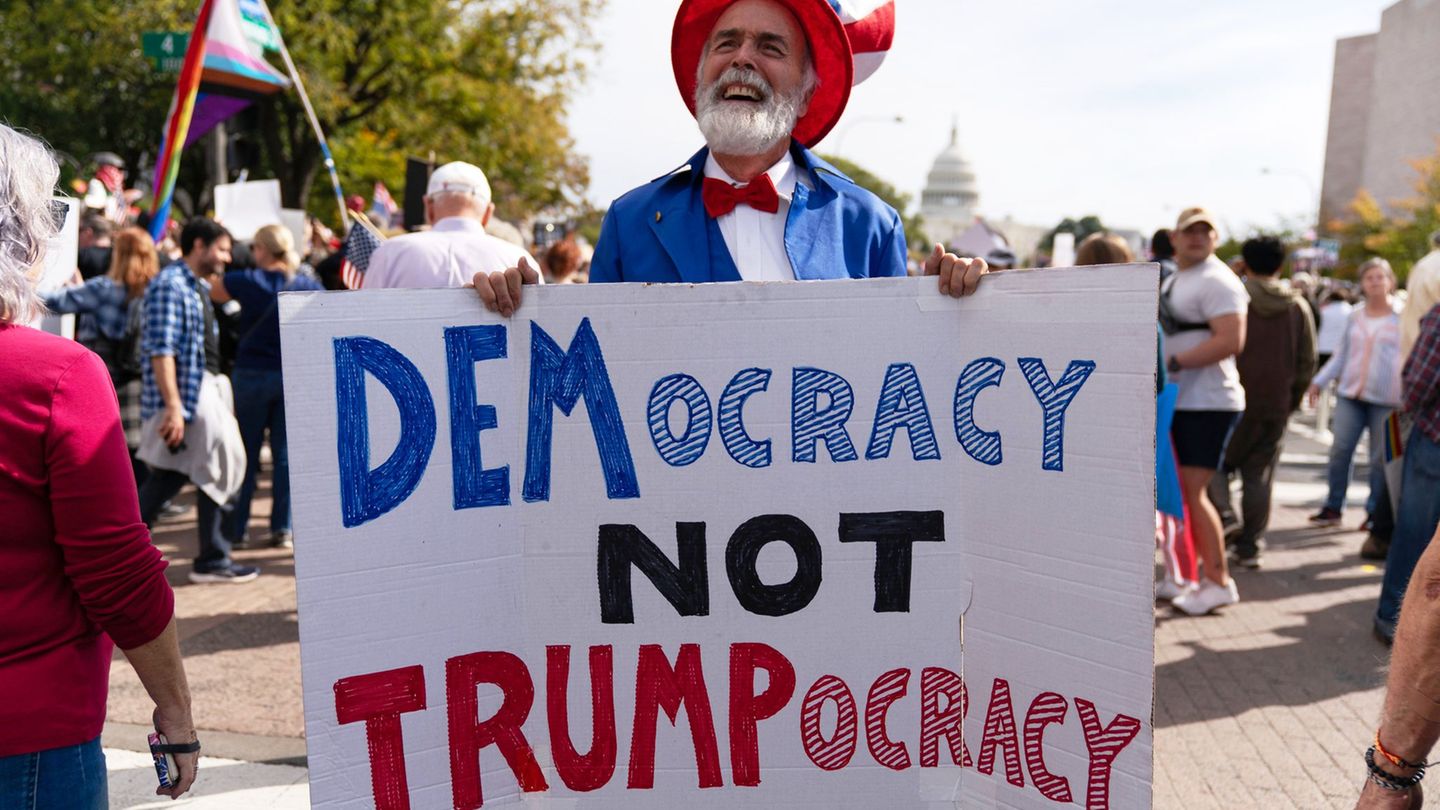Israelis are going to the polls for the fifth time in just a few years. Ex-Prime Minister Netanyahu is hoping for a comeback with the help of the far-right camp. Whether he will succeed in this remains uncertain.
Long-serving Israeli Prime Minister and current opposition leader Benjamin Netanyahu has expressed “somewhat concerned” about the outcome of the parliamentary elections. When voting in Jerusalem, the leader of the right-wing conservative Likud party pointed out that voter turnout in strongholds of political competition has so far been higher. He still hopes to “end the day with a smile”. Netanyahu appealed to his supporters to go to the polls immediately.
The highest voter turnout since 1999 was recorded in Israel’s parliamentary elections. According to the central election committee, it was 28.4 percent on Tuesday afternoon. This is three percentage points more than at the same time in the last election in March last year.
40 lists compete in the election, but only a third is expected to make it through the 3.25 percent hurdle. The first forecasts will be published when the polling stations close at 9:00 p.m. German time. However, the final result is not expected before Thursday.
Two big camps – for and against Netanyahu
According to the latest polls, Netanyahu’s Likud party could become the strongest force again. However, it is uncertain whether his right-wing religious camp will be able to secure a majority of the seats overall. A possible stalemate is expected again between Netanyahu’s camp and that of his opponents, led by the liberal Prime Minister Jair Lapid (58) from the Future Party. Should there not be a clear majority, Lapid would remain in office for the time being. Should the formation of a government fail, another new election could become necessary.
Lapid’s camp includes parties from the right to the left. The 58-year-old spoke out in favor of establishing an independent Palestinian state. What unites his camp above all is the will to prevent Netanyahu from returning. Corruption proceedings are pending against the 73-year-old.
Arab parties and right-wing extremists influence election results
The decisive factor is the turnout of the Arab population. If one of the smaller parties in the Lapid camp fails to clear the 3.25 percent hurdle, it could pave the way for an ultra-right government under Netanyahu. The extreme right-wing alliance of Bezalel Smotrich and Itamar Ben-Gvir, the Religious Zionist Party, is seen as a possible kingmaker.
After the election, President Izchak Herzog decides who will be given the task of forming a government. The candidate then has four weeks to form a coalition. Like last year’s election, it could be weeks or months before a government is in place.
Elections in a loop
The party landscape in Israel is highly fragmented and driven by interests. Even parties from similar camps are often not able to form alliances. In addition to differences in content, this is also due to personal disputes. For example, Netanyahu’s relationship with other main figures of the right-wing camp is considered extremely bad.
The country on the Mediterranean has been in a permanent crisis for years. The past elections had often led to unclear majorities. The current eight-party coalition led by Prime Minister Naftali Bennett collapsed in June after losing its majority after just 12 months. Subsequently, Foreign Minister Lapid took over the post of head of government.
Source: Stern
David William is a talented author who has made a name for himself in the world of writing. He is a professional author who writes on a wide range of topics, from general interest to opinion news. David is currently working as a writer at 24 hours worlds where he brings his unique perspective and in-depth research to his articles, making them both informative and engaging.




